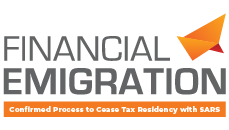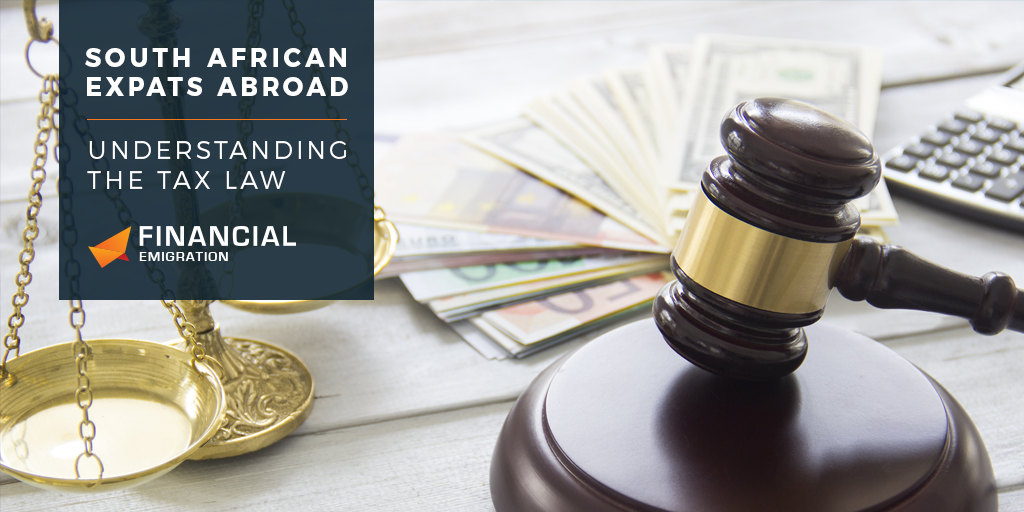South African expatriates need not only understand the new expatriate tax law but also act on it or face dire tax consequences come 1 March 2020.
The Expat Tax Amendment
The amendment to section 10(1)(o)(ii) of the South African Income Tax Act No. 58 of 1962 formed part of the Taxation Laws Amendment Bill of 2017, which amendment was promulgated in section 16(1)(g) of Taxation Laws Amendment Act No. 17 of 2017, on 18 December 2017 under gazette number GG 41342 (“the amendment”).
Many South African expatriates believe that the law has not been legally amended and will thus not affect them. This belief is unfortunately incorrect, as the law change has been fully enacted. This new law, however, will only come into effect 1 March 2020 – the reason for this delayed effective date is to provide South African Expatriates the opportunity to lobby Parliament and further to allow expatriates and their employers to get their ducks in a row.
The new law now reads –
“There shall be exempt from normal tax— any form of remuneration— to the extent to which that remuneration does not exceed one million Rand in respect of a year of assessment and is received by or accrues to any employee during any year of assessment by way of any salary, leave pay, wage, overtime pay, bonus, gratuity, commission, fee, emolument or allowance, including any amount referred to in paragraph (i) of the definition of gross income in section 1 or an amount referred to in section 8, 8B or 8C, in respect of services rendered outside the Republic by that employee for or on behalf of any employer, if that employee was outside the Republic”
Is R1m exemption enough?
The amendment will require that South African tax residents abroad will be required to pay South African tax of up to 45% of their foreign employment income, where it exceeds the R1m threshold.
Whilst this may sound like enough, the problem is that employment income also includes allowances and fringe benefits paid to expatriates, which cannot economically be considered as “earnings”. The reality is that house, security, flights, etc. are mostly part of expatriate packages to allow the expatriate to work in the foreign location. These eat up the R1m threshold quickly, especially considering the harsh and expensive environments into which expatriates must often operate.
What are the options?
There are effectively three schools of thought for expatriates, excluding those who are adopting an “ostrich, head in sand” and / or “catch-me-if-you-can” approach:
- There is a segment of expatriates who are starting to wrap-up their expatriate work, planning on returning to South Africa. Our practice gets increasing enquiries on the change to legal status and strategies to be adopted to ensure that they do not compromise their previous tax- exempt status. Typical questions centre around where world-wide income was not previously correctly declared, setting-up of offshore investment vehicles including trusts, how funds should correctly be re-introduced into South Africa and even the latest rules and planning for setting up South African companies to utilise their international contacts in starting a business.
- The financial emigration route, which is the SARS and SARB formal process to have noted that you are no longer “ordinarily resident” in South Africa, remains the only formal route in law to permanently have a status change noted. This is also the “formality” which has been noted in the National Treasury Parliamentary response document, which ensures that the new R1m tax rule does not apply to a South African abroad.
- There is a cautious grouping of expatriates who have a “wait and see” approach; supported by the following –a) The Barry Pretorius’ Expatriate Petition Group keeps engaging with National Treasury on expatriate compliance, to get additional relaxation of the rules.b) The double tax agreement route, getting tax residency certificates, are advocated correctly as a way of also achieving a non-residency status. This is, however, not an ideal option for many, mainly due to this being a repeat process every year, that SARS does not have to accept the tax position adopted and especially timing differences when the expatriate leaves the foreign country can often result in the exemption not being available.
Safeguarding Your Foreign Income
The most compliant way to fully ensure that foreign income earned as a South African expatriate is protected from South African tax is to formalise one’s emigration through SARS and the South African Reserve Bank.
This process is commonly known as Financial Emigration, and once undertaken by an expatriate, it cleanly cuts ties with South Africa from a tax perspective regarding foreign income – income is interpreted widely and thus it is not just employment income, but all income received from all sources abroad, including interest, dividends and rental income etc.
Act Now – Protect Yourself
One of the important items noted in last year’s Parliamentary process, was the caveat against last minute changes. It was noted that someone who has been an expatriate for a long period and that emigrates just before the 1 March 2020 effective date, must expect that their actions will be viewed with the necessary suspicion.
The prudent and fiscally conservative position remains to always have your tax affairs with SARS fully up to date and legally compliant – this includes having the correct tax status noted on the SARS system. Tax strategy includes that the SARS auditor must see a history and consistency in compliance, thus meaning the taxpayer is determined as a low or no-risk taxpayer.









